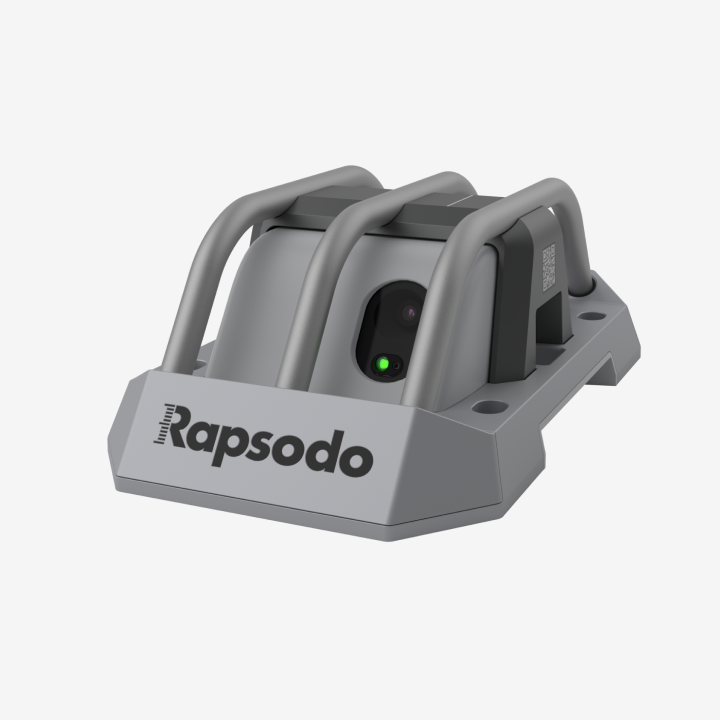The game of softball has never been as talented and competitive as it is NOW. You need to utilize all of the tools available to get the edge you need to succeed and if you're not...then you're not able to compete. The NEW Rapsodo PRO 2.0 softball flight monitor brings you a hitting & pitching monitor with easy-to-use technology and data-driven results made specifically for softball players because the product was made by softball players. The industry-leader in softball technology just got better.





Introducing...
The PRO 2.0 – where Softball training meets unmatched performance. Designed with coaches and players in mind, this all-in-one device brings together cutting-edge technology, seamless functionality, and real-time insights. With over 20 key metrics at your fingertips and a brand-new app tailored specifically for Softball, PRO 2.0 is more than just a training tool—it’s the ultimate performance upgrade for every player and every team.
Upgrade your practice. Upgrade your game.
Train your whole squad with a single device and seamlessly switch between Pitching and Hitting modes without missing a beat. PRO 2.0 lets you analyze pitch dynamics and perfect swings all in the same training session.
PRO 2.0 gives coaches and athletes the ability to choose between a 3D Field Simulation view or Instant Video Replay. Get immediate and accurate feedback on every pitch or swing for on-the-spot refinements
No more estimating! PRO 2.0 captures twice as many images as our legacy units to provide more accuracy for hitters, pitchers, and coaches.
The first app of its kind built specifically for softball usage. This includes softball specific pitch types, stride length, break charts, & session types.


THE METRICS THAT MATTER MOST


How fast a pitch is traveling during flight, measured in miles per hour (MPH).


The rate at which the ball spins during flight, measured in rotations per minute (RPM).


The spin directly impacting the movement of a pitch. Also known as “useful spin” it is perpendicular to the direction the ball is traveling, deflecting the otherwise straight horizontal and vertical path of the ball.


The tilt or angle of the baseball from the release point, measured in degrees, created by the Magnus effect. The Magnus effect is created by the air pressure surrounding the spinning baseball on its path to home plate.


Measurement that tells us how well a pitcher stays behind the ball at release.


Takes into account release point, pitch location, and pitch movement to measure left-to-right (or right-to-left) angle as the pitch enters the zone.


The horizontal movement of a pitch from the right (+) and left (-) from the center of home plate.


The percentage of spin directly impacting the movement of a pitch. Spin efficiency is the ratio of true spin to total spin.


The vertical movement of a pitch at the height the ball crosses the strike zone.


The point at which a pitcher releases the ball.


The height of the ball at the point of release.


The angle at which a ball vertically crosses in front of home plate, measured in degrees


The tilt or angle of the baseball from the release point, measured in degrees, created by the Magnus effect. The Magnus effect is created by the air pressure surrounding the spinning baseball on its path to home plate.


The rate at which the ball spins during flight, measured in rotations per minute (RPM).


Understand how your hitters perform against different pitches with complete inbound pitching data.


The speed of the baseball as it comes off the bat immediately after contact.


Angle the ball leaves the bat relative to the ground.


Distance the baseball traveled in the air.


The direction, plotted on a baseball diamond, that an in-play ball takes in flight.









The horizontal movement of a pitch from the right (+) and left (-) from the center of home plate.


The percentage of spin directly impacting the movement of a pitch. Spin efficiency is the ratio of true spin to total spin.


The vertical movement of a pitch at the height the ball crosses the strike zone.


The point at which a pitcher releases the ball.


The height of the ball at the point of release.


The angle at which a ball vertically crosses in front of home plate, measured in degrees


The tilt or angle of the baseball from the release point, measured in degrees, created by the Magnus effect. The Magnus effect is created by the air pressure surrounding the spinning baseball on its path to home plate.


The rate at which the ball spins during flight, measured in rotations per minute (RPM).


Understand how your hitters perform against different pitches with complete inbound pitching data.
USED BY THE NATION’S TOP
COLLEGIATE PROGRAMS.


































